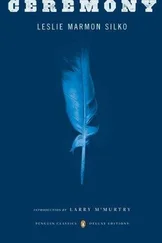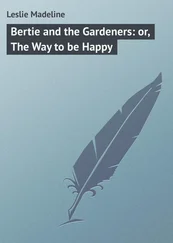“I understand, Linnaeus; she is your friend.”
Edward returned after a time with a short length of rope.
“No need for that,” Hattie said. “Linnaeus came down of his own accord. He’s under there with the child.” Edward squatted with the rope in his hands and peered intently under the bench into the mess of pots and debris, and Hattie realized the rope was intended for the child.
“Please, Edward, she hasn’t moved. She can’t get away. Let’s wait until the school authorities come.” Hattie took his arm and nodded her head in the direction of a white marble bench strewn with ripped-up wisteria leaves and blossoms. Edward let the rope drop to the floor before he joined her. She appeared upset with him, so he apologized at once. He never meant to imply she neglected the monkey. She wasn’t so sensitive as that, Hattie replied; she was concerned about the Indian child. The rope really was beyond the limit!
The rope had been only a precaution — for the child’s own good, so that she did not escape and flee into the desert, Edward persisted. Riverside people were familiar with runaways from the Indian school; Hattie had no experience with Indians — certainly not these wild Indians.
Edward took his watch from its pocket. What was taking so long? The boarding school was only two miles down the road. Edward went up to the house to see what had become of the cook and the message to the school authorities.
After Edward shut the door behind him, Hattie sat very still and waited; after a time, she watched the child lift her head to look around. The monkey came out from under the bench first, followed by the child, on her hands and knees, who then stood up. They both ignored Hattie as they marched up the middle aisle of the glass house to the monkey’s cage, only a few feet from the marble bench.
She watched the monkey and child sit side by side on the monkey’s straw mat, where they took turns rolling the monkey’s toy ball to each other. Both the child and the animal seemed to know their holiday together would soon end. A terrible wave of sadness and hopelessness welled up in Hattie, more overwhelming than anything she had felt during the thesis scandal, and her eyes filled with tears. She might not know much about “wild Indians” but she did know they were human beings.
An unaccustomed anger sprang up inside her at that instant, and Hattie became determined the child would not be bound and dragged away like a criminal. She was still angry at the tone of voice Edward had used with her earlier, despite his apology. His tone revealed something disturbing about his impression of her — something she could not yet identify.
Edward returned with an expression of frustration on his face. The school superintendent was away until the following week, and only the janitors and gardeners were on the premises. Any remaining students had been sent home for the summer or placed with local families to work until school started again. The dormitories were closed. The monkey and the child watched Edward’s every motion as he explained the Riverside sheriff would take the child until the superintendent returned next week.
Hattie was incredulous that the school personnel so quickly called off their search for the missing child, even if it was the end of the school term. Edward reminded her the school personnel were government employees. Besides, the Indian students ran away constantly. Hattie was not persuaded. The child was too young to simply abandon! It was outrageous! It was criminal. Anything might happen to a child, especially a girl! Hattie noticed Edward’s surprise at the vehemence of her words, but she did not feel ashamed, she felt fierce. The Indian child meant nothing but trouble to the school authorities; they didn’t care if she was lost or died — that meant one less Indian they had to feed.
“At least she can stay here with us until the school superintendent returns next week,” Hattie said in a more controlled voice.
Edward was too surprised by Hattie’s display of emotion to argue, although he expressed concern the child might flee before the school authorities returned. Staff personnel at the school had warned him about the girl. She was from one of those renegade bands of desert Indians. She was a wild one.
“Does she speak any English?” Hattie asked. Edward shrugged.
“I wonder how old she is. What would you say?”
This time Edward smiled and shook his head. “You’d be a better judge than I.” They both were looking at the child, who sat solemnly on the monkey’s mat watching them; the monkey sat quietly beside her.
“We can’t leave her here,” Hattie said,
The child could stay in one of the spare bedrooms until the authorities came for her. Edward was so relieved that Hattie was no longer upset, he failed to mention the Indian boys he hired from the school always slept on pallets in the tack room.
Edward was annoyed at the sullen expression on the cook’s face when he asked her to prepare the spare room for the child. She muttered under her breath about being murdered in her sleep, and Edward recalled the cook used to fear that the Indian boys would leap up from their weeding and shoveling to ravish her.
After Edward left, the monkey came out of the cage and approached Hattie confidently. It hopped up on the end of the marble bench and sat down beside her to examine the lace inset in the arm of her dress. Hattie sat very still while the monkey carefully fingered the delicate threads of the lace.
“Linnaeus, you are a darling creature!” she said as she gently stroked the fur on his back. “I wonder, does your friend over there speak any English?” Hattie watched the girl’s facial expression for any shift that might indicate she understood Hattie’s remarks, but saw none. The sun was overhead now and the heat inside the greenhouse was quite noticeable; the glass panels badly needed a fresh coat of whitewash. Hattie stood up with the monkey in her arms and walked over to the door of the cage. The child’s dark eyes fixed on her every move. Hattie smiled and knelt down; the monkey went over to the child and took her hand as if to lead her to Hattie, but the child stayed put.
Edward returned with a volume of linguistic surveys of various desert Indian tribes. He stood with Hattie at the door of the cage and began to attempt to pronounce words in Shoshone and Paiute to see if the child responded. All this time she had not moved from her place on the monkey’s pallet inside the cage. Edward went through the Agua Caliente and Cocopa words and was just beginning to struggle with words in Mojave when a big smile spread across the girl’s face and she laughed out loud. The monkey chattered excitedly and climbed to the cage top. The girl stood up and looked down at them confidently.
“I talk English,” Indigo said. “I talk it way better than you talk Indian.”
All morning Indigo had listened closely whenever the man and woman spoke, and she realized she understood English better than ever; there were only a few big words now she didn’t recognize. The monkey made it clear the woman was a friend of his. The appearance of the length of rope had alarmed Indigo, but the woman’s words caused the man to drop the rope; the woman’s words gave Indigo the confidence to speak.
“Yes, you speak English very well,” Hattie said, amused at the child’s sudden boldness. Edward looked at the child and then at the photographs of the Indians of various tribes in the book. He tried to determine which tribe the child came from, but the school stripped the children of all evidence of their particular tribes.
Indigo had intended to stay only three or four nights until the people least expected an escape. But the monkey did not want her to begin the journey yet; it was too hot and she would die along the way. The monkey sensed the approach of the desert heat. Hadn’t they taught her any better than that? Yes, she told the monkey; Grandma Fleet always said it was best to wait for cool weather to travel.
Читать дальше












